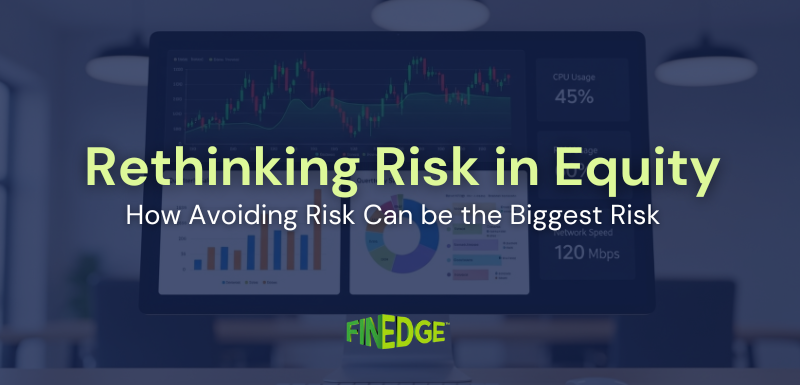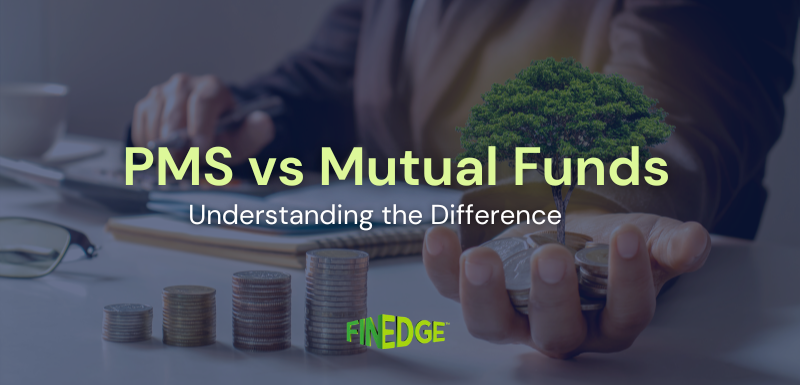Investing Insights
Mayank is a co-founder at FinEdge and his experience of more than 20 years in the banking and financial services industry has been instrumental towards building the FinEdge platform.
He has held key positions across the Retail and Wholesale Banking verticals at Standard Chartered Bank, driving growth in segments managed by him.
Mayank is a post graduate in Marketing and Finance and has completed his Bachelor’s degree from Delhi University.
He has a keen interest in technology and likes to keep himself updated with the latest in the tech world.
How to Adjust Your Investments After a Salary Raise
A salary hike is more than a pay revision, it is an opportunity to realign your financial direction. The smartest response to higher income is not immediate lifestyle expansion, but a structured review of your goals, debt position, and investment contributions. When handled thoughtfully, each raise can accelerate wealth creation rather than simply increase monthly expenses.
ELSS Mutual Funds: A Simple Way to Save Tax and Build Long-Term Wealth
ELSS mutual funds help you save tax under Section 80C while participating in equity markets for long-term growth. With the shortest lock-in among 80C options and the flexibility of SIP investing, they can align tax efficiency with disciplined wealth creation. Used correctly, ELSS is not just a tax-saving tool, but a long-term investment strategy.
How to Save More From Everyday Expenses and Invest More Consistently
Spending smarter, timing purchases better, and being intentional with recurring expenses can create a steady surplus that can be channelled into long-term investments.
3 Stages of Your Income Generation Plan Explained
Income doesn’t stop when your career does; it simply changes its role. A well-thought-out income generation plan helps your money move with you, from earning years to retirement and beyond.
Rupee Falling? How to Protect and Grow Your Investments
When the rupee weakens, it often creates anxiety for investors. But currency depreciation is not an anomaly; it is a recurring phase in every long-term economic cycle. The real question is not whether the rupee will fall, but how investors should respond to it without derailing their long-term financial goals.
When Playing It Safe Becomes Risky: Rethinking Risk in Equity Investing
Avoiding risk often feels prudent, especially when markets turn volatile. But in investing, staying away from equity entirely can quietly become the biggest risk of all.
The Power of Compounding: How Small Investments Turn into Big Wealth
Compounding is the single most powerful force behind long-term wealth creation. It rewards patience, discipline, and consistency more than any short-term strategy ever can. If you want your investments to grow exponentially instead of linearly, compounding must be at the centre of your approach.
The Portfolio Health Check: 5 Signals Your Investments Need Attention
Most investors assume that if their investments are performing reasonably well, there’s nothing to review. But portfolios don’t drift out of alignment overnight, they do so gradually. A portfolio health check isn’t about reacting to markets or chasing returns. It’s about ensuring your investments continue to reflect your goals, your life, and your temperament.
PMS vs Mutual Funds: Which Is Better for Long-Term Wealth Creation?
Sophisticated doesn’t always mean superior. When it comes to building long-term wealth, simplicity, discipline, and transparency often outperform complexity and exclusivity.
How to Select the Best Financial Advisor: A Professional Step-by-Step Guide
Selecting the right financial advisor goes beyond credentials or returns, it’s about finding a partner who understands your goals, values transparency, and guides you with objectivity and discipline.
Investing Your Retirement Corpus Wisely: What to Do and What to Avoid
Retirement planning isn’t about picking the perfect product. It’s about building a structured roadmap that reflects your lifestyle, income needs, and long-term priorities. Yet, many investors delay it or make decisions without enough clarity. These mistakes may not show immediate consequences, but they often lead to shortfalls, stress, and financial insecurity in later years.
How to Start SIP Investment: A Beginner-Friendly Guide for Long-Term Growth
If you're wondering how to start SIP investment, you're not alone. SIPs, or Systematic Investment Plans, have become one of the most popular tools for long-term wealth creation in India. They’re simple, disciplined, and powerful - especially for those earning monthly incomes and looking to grow their savings through mutual funds. This guide explains how SIPs work, how to get started (both online and offline), and why they are trusted by millions of investors for goal-based financial planning.
Latest Posts
Should You Continue Investing in ELSS and PPF in the New Tax Regime?
Mar 02, 2026
Does High Income Make You Wealthy?
Feb 27, 2026
Retirement Planning in India: A Practical Framework for Long-Term Security
Feb 25, 2026
When Is the Right Time to Start Investing for Your Goals?
Feb 23, 2026
How to Adjust Your Investments After a Salary Raise
Feb 20, 2026
The Importance of your Child’s Education Goal
Feb 28, 2024
Why Retirement Planning is Important
Nov 08, 2023
Oct 31, 2023
Investing Behaviour and the investing roller coaster
Oct 12, 2023
.png)
















.jpg)
